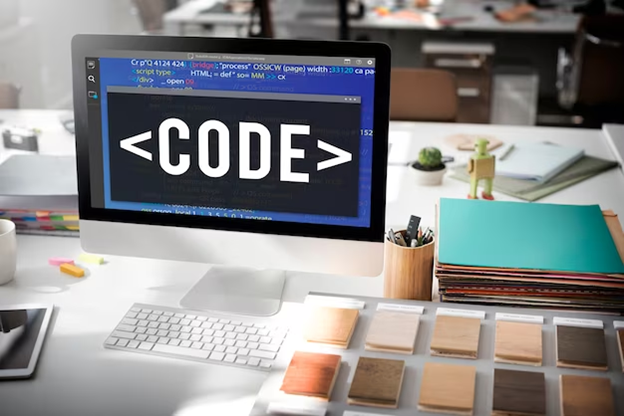Coding and Software design
Coding is computer programming, which is how we communicate with computers. Code tells a computer what actions to take. At PHILLY-TECH, students will learn computer coding with software designed for a specific use or task for multiple purposes.
At PHILLY-TECH, students will learn how software developers create computer programs and understand the similarities and the differences between software developers and software programmers. Students will learn the difference between a computer programmer, sometimes called a software developer, or more recently a coder. In addition, students will learn to compare software developers who deal with design and program implementation, in contrast to software engineers who use the principles of engineering to build computer programs and applications.
The program will continuously adapt to evolving coding and software design technologies and practices. Students will have the opportunity to work on real-world projects, building a portfolio that prepares them for careers in software development, web development, mobile app development, data science, or other related fields.

Diploma in Coding and Software Design Program
Duration: 1 to 2 years (4 Trimesters)
COD 100: Introduction to Programming
- Overview of programming concepts and terminology
- Introduction to various programming languages
- Writing and running simple programs
CODMATH 100: Mathematics for Programming
- Fundamentals of algebra and discrete mathematics
- Mathematical concepts used in coding
- Problem-solving with mathematical logic
CODSTR 100: Algorithm Design and Data Structures
- Introduction to algorithm design and analysis
- Common data structures (arrays, lists, stacks, queues)
- Searching and sorting algorithms
WEBDEV 100: Web Development Basics
- Introduction to HTML, CSS, and JavaScript
- Creating and styling web pages
- Interactive web elements and scripting
CODOOP 100: Object-Oriented Programming (OOP)
- Concepts of OOP (classes, objects, inheritance)
- Developing object-oriented software
- Design principles (SOLID) and design patterns
Database Management and SQL
- Introduction to database systems
- SQL queries and database design
- Data modeling and normalization
SOFDEV 100: Software Development Lifecycle
- Phases of software development (SDLC)
- Project management and agile development
- Version control and collaboration tools (e.g., Git)
COD 101: User Interface (UI) and User Experience (UX) Design
Basics of UI and UX design
Design thinking and user-centered design
Prototyping and usability testing
WEBDEV 101: Web Application Development
- Server-side scripting and frameworks (e.g., Node.js, Django)
- Building dynamic web applications
- Web security and authentication
APPDEV 100: Mobile App Development
- App development for iOS and Android platforms
- App design and user interface for mobile devices
- App deployment and distribution
DATA 100: Data Science and Analytics
- Data analysis with Python and R
- Machine learning and predictive modeling
- Data visualization and reporting
CYBSE 100: Cybersecurity and Ethical Hacking
- Network and system security fundamentals
- Ethical hacking techniques and penetration testing
- Security best practices and compliance
SOFPMAN 100: Software Project Management
- Software project planning and estimation
- Agile methodologies and project execution
- Quality assurance and testing
CODPRO 100: Capstone Project
- Independent software project development
- Real-world application development
- Presentation and documentation of the project
EMERTEC 100: Advanced Topics and Emerging Technologies
- Exploring emerging tech trends (AI, IoT, blockchain)
- Cloud computing and serverless architecture
- Career paths and continued learning in software design
CODTES 100: Final Assessment and Certification
- Final assessment and evaluation of knowledge and skills
Successful completion of the program leads to the award of the Diploma in Coding and Software Design.
Students have to contact the school administration if they want to take extra credits or transfer credits to pursue the Diploma Certificate or Associate of Applied Science (A.A.S.) Degree in their field of interest. Students will select required number courses in each of the areas listed to meet general education requirements graduation for the A.A.S. Some of these courses can be transferred directly from and to the university system and may be substituted for recommended courses on the outline. Students should speak with an advisor before doing so these selective courses are required for all students.
- Selected Communication Course (Choose two for Diploma or three for the Associate)
ENGL 100: Fundamentals of Speech
CPL 100: Career Planning
CPL 101: Communications and Career Strategies
ENGL 101: Composition
ENGL 102: composition
- Selected Mathematics Course (Choose two for Diploma or three for the Associate)
MATH 100:General Math
MATH 101:Intermediate Algebra
MATH 102:College Algebra
- Selected Social Science Course (Choose two for Diploma or four for the Associate)
ECON 105:Leadership
ECON 101:Principles of Microeconomics I
ECON 102:Principles of Macroeconomics II
SOC 101:Introduction to Sociology
PSYC 101: Introduction to Psychology
HIST 101: History
